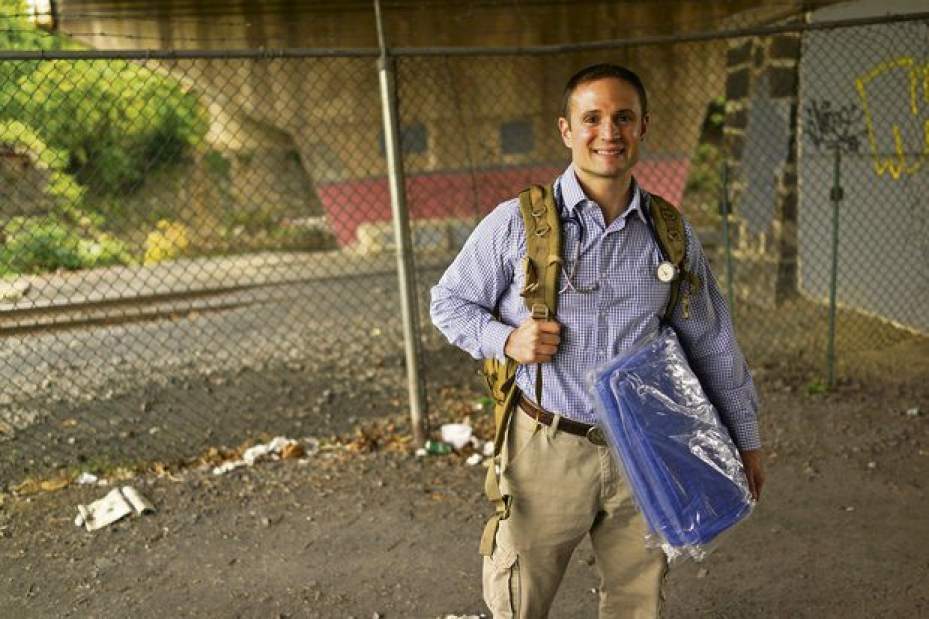Allentown physician assistant Feldman practices 'street medicine'
EASTON — Brett Feldman will go wherever his patients need him.
He'll travel to Allentown, Bethlehem, Easton. You can find him in shelters, soup kitchens and tent encampments.
The physician assistant, 34, of Allentown is one of a few dozen practitioners of “street medicine,” which involves medical professionals going to the streets to serve patients who are too poor or too reluctant to seek out the care they need.
“I love it,” Feldman said.
As a physician assistant, he can treat patients and prescribe medicine as long has he remains under the supervision of a doctor. He started practicing street medicine about nine years ago. Before that, he volunteered to help the homeless.
A moment of clarity came when he was starting out and helped a homeless person who told him, “I used to be somebody.”
Feldman made it his goal to show that person and everyone who's homeless that being homeless does not mean you are no longer a person.
“That just always stuck with me, how dehumanizing homelessness is,” Feldman said. “They have to sleep places where no one should have to sleep and eat things no one should have to eat.”
St. John's Lutheran Church pastor Susan Ruggles is helping to organize a rotating shelter for the 13 coldest weeks of the winter.
Once a week, Feldman holds a clinic at Safe Harbor shelter in Easton. It's one of six sites where he regularly administers care in the Lehigh Valley.
“He's made a huge difference for the residents and the homeless community here in Easton,” said Safe Harbor Executive Director Anita Mitchell.
Feldman said homeless people forgo health care most often because they lack insurance, lack transportation and lack trust for health care professionals.
His program is free. He sets up clinics in places where homeless people are comfortable, and returns regularly to build relationships and establish trust.
In addition to caring for their medical needs, he helps refer them to social workers. He explains how they can get a photo ID or a government-subsidized phone so they can seek employment and get back on their feet.
“Their biggest challenges are things that we thought we had solved a century ago: basic sanitation, access to clean water and access to a reliable food supply,” Feldman said. “In this population they still don't have those basic things.”
Many homeless people also struggle with mental health or substance abuse problems. The average life expectancy for homeless people is between 42 and 52, according to a 2009 report from the National Coalition for the Homeless. So any basic health assistance Feldman can provide goes a long way.
Not every medical professional would be willing to trek through mud under bridges or through brush into tent encampments.

